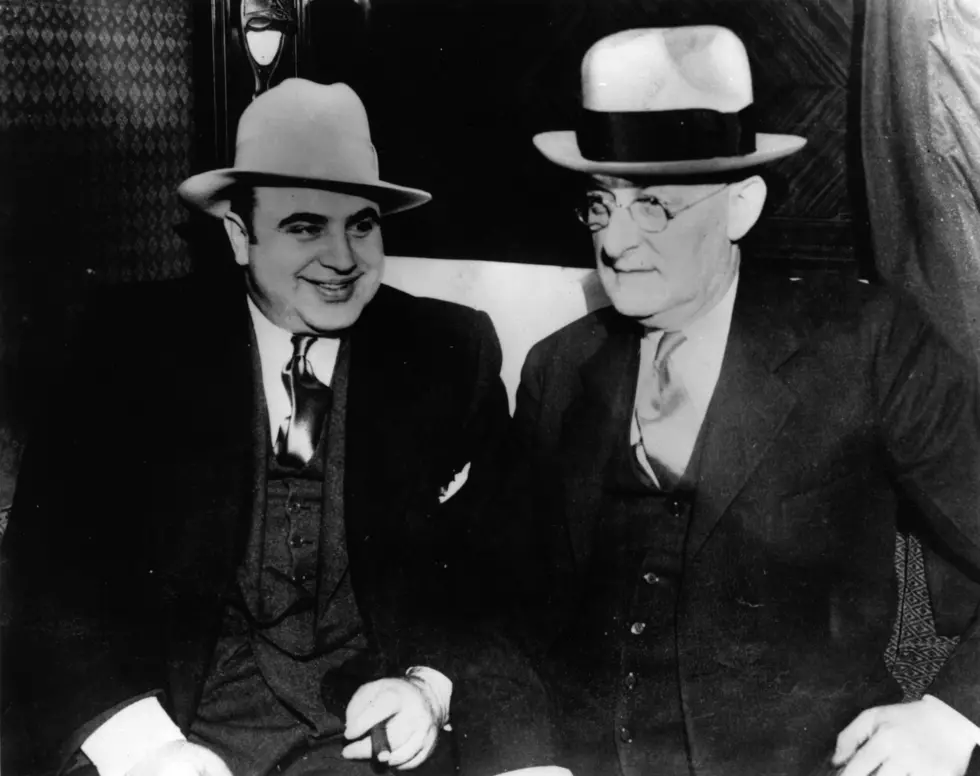
Listen: Michigan State’s Tom Izzo Doesn’t Sound Long For Coaching Amid College Sports NIL and Transfers
(Click play in the media player above to hear audio of Tom Izzo's interview from the May 13 edition of "Staudt On Sports'" on The Game 730 AM. Izzo's remarks begin at the 1:08 mark.)
RELATED: Here's A Short List Of Candidates For Tom Izzo's Successor At MSU
Everyone knows Tom Izzo is old-school.
His basketball philosophy is predicated on rebounding and defense, two principles that have become passé in an era of small-ball, position-less hoops.
But his personal ethics are old-school, too. And recent tectonic shifts in college sports — the advent of players being able to capitalize on their own name, image, and likeness; instant transfers and the transfer portal — don't fit with what Izzo's all about. He believes those changes are undermining the wellbeing of college athletes.

Since he's a man so utterly committed to his beliefs (critics would say he's stubborn), you have to wonder how much longer Izzo, who's 67 and entering his 28th season at the helm of MSU basketball, will put up with it before he calls it a career.
Izzo joined "Staudt On Sports" Friday, May 13 on The Game 730 AM to cover a wide range of topics. This was several days before Monday's news that Max Christie would be remaining in the NBA Draft, officially leaving Michigan State after one season.
Asked about the recent retirement of Villanova coach Jay Wright, along with those of Duke's Mike Krzyzewski and North Carolina's Roy Williams, Izzo said it's no secret that the changes in college sports played a significant role.
"You can say guys retired because they're getting older. I don't think that's necessarily true," Izzo said. "I think guys are retiring because the fight of the fight is getting insurmountable. Like everything else in life, you gotta learn how to adjust. You can't change the world, but at the same time you gotta make sure the world doesn't change you."
Izzo said Wright, with whom he is good friends, was simply exhausted of the new era of college sports.
"He just had it," Izzo said. "He just did not believe philosophically that this was helping kids, and that's my problem. It might help for a couple of years, but what about the next 70 years?
"We shouldn't be catering to the 1, 2, or 3 percent [of college basketball players who go on to play professionally]. I think we gotta get back to what is our job — our job is to make a kid's life better. Is that three years or four years — that's the problem I'm having right now."
Izzo said he supports college athletes having the ability to earn money off of their own name, image, and likeness, but he has serious doubts about college sports' current system for that.
"Everybody's for players getting some money," he said. "But getting some money and enough money to get in trouble in this day and age of drugs and alcohol and gambling and all the things there are out there...
"I was in my 30s before I made any money. I was in my 40s before I made any significant money, and it was hard to adjust to that. These guys that are 18 and we have agents in the high schools now — somebody was insane when they came up with some of these things."
Izzo admitted that the massive changes in college sports have made his job harder. He specifically cited recruiting — but not necessarily the recruitment of new players. Izzo said that the advent of the NCAA's one-time transfer rule that allows instant eligibility to play, as well as the transfer portal, means that coaches now have to recruit their current players to stay with their programs.
"You're re-recruiting parents, kids — you're making sure you don't have too many players because nobody's happy," Izzo said. "Every day. Every single day. That's why you don't take vacations.
"It's sad what's happened — I'm not gonna sugarcoat it. This is the first time in my 27 years that I only have 11 guys on scholarship because I don't even know if you can keep 13 happy."
Changes to college sports' transfer process has dealt a serious blow to accountability, according to Izzo, and that's his biggest concern.
"I'm worried that we're gonna get to the point where you're gonna play at Michigan first semester and Michigan State second semester, the way these rules are going," Izzo said, "and I don't think that's good for anybody."
Izzo recounted a memory from "many years ago" when he asked Earvin "Magic" Johnson if he believed Izzo had what it takes to be an NBA coach. Johnson answered yes because Izzo believes in being held to account and pushed to reach his potential, Izzo said.
"Earvin's point, I've thought and used it often. Anybody who wants to be great wants to be pushed, wants to be coached, wants to be disciplined, wants to be held accountable. They really do," Izzo said, contrasting that mindset to college sports' increase in transfers.
"I can't change the world, but I don't want the world to totally change me. Adjust? Fine. But change? No, not really."
You can hear Izzo's remarks in the media player at the top of this article.
LOOK: Biggest underdog victories in March Madness
More From 94.9 WMMQ









